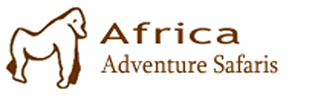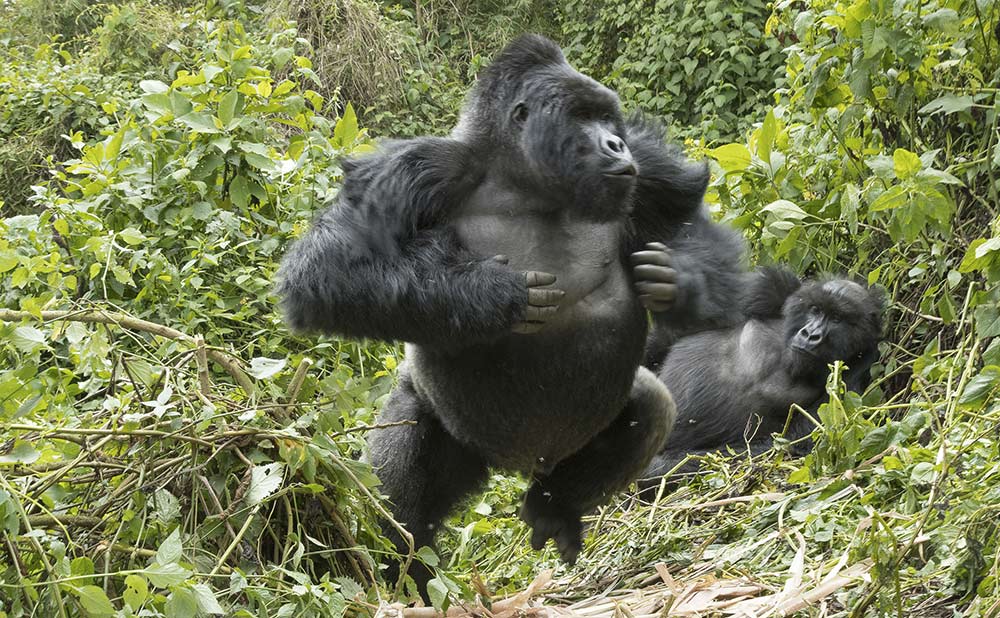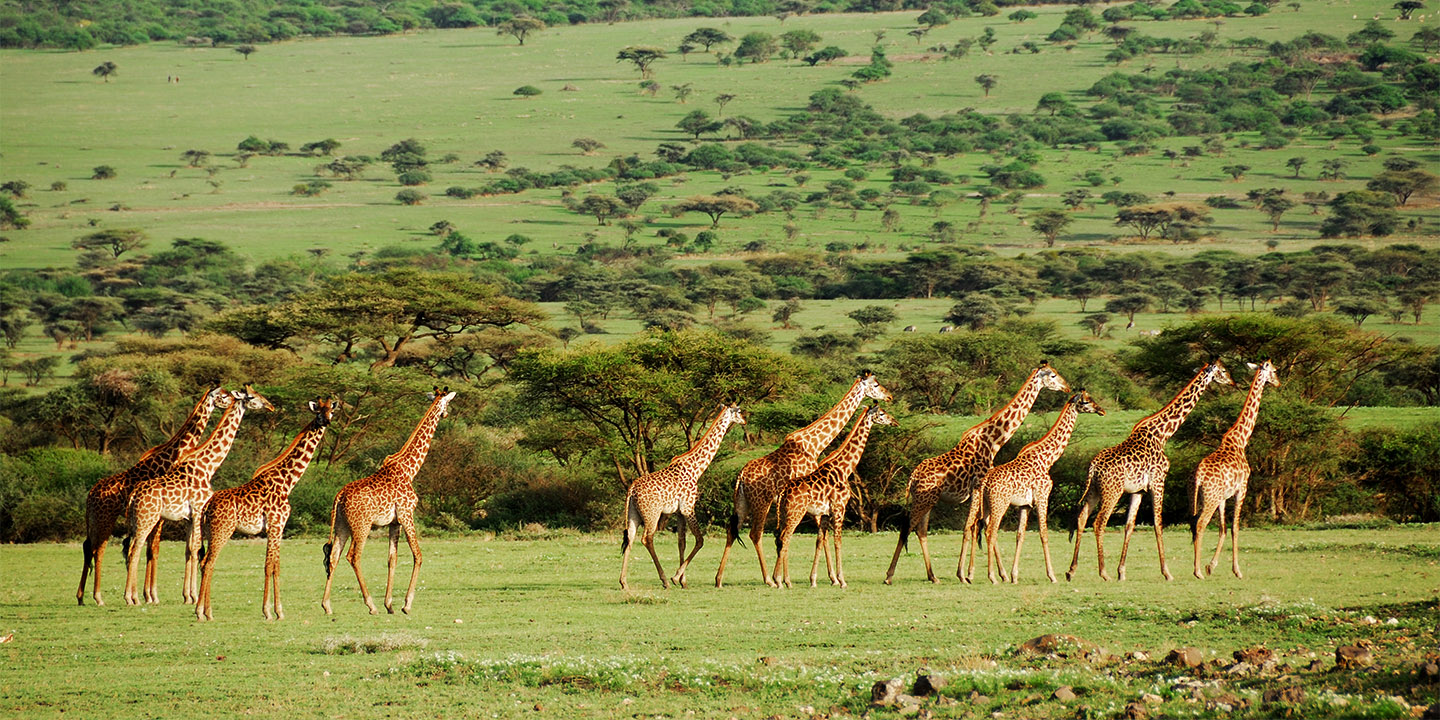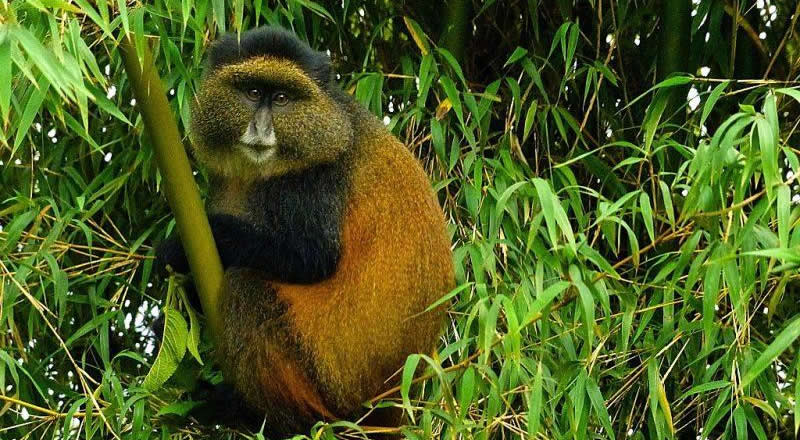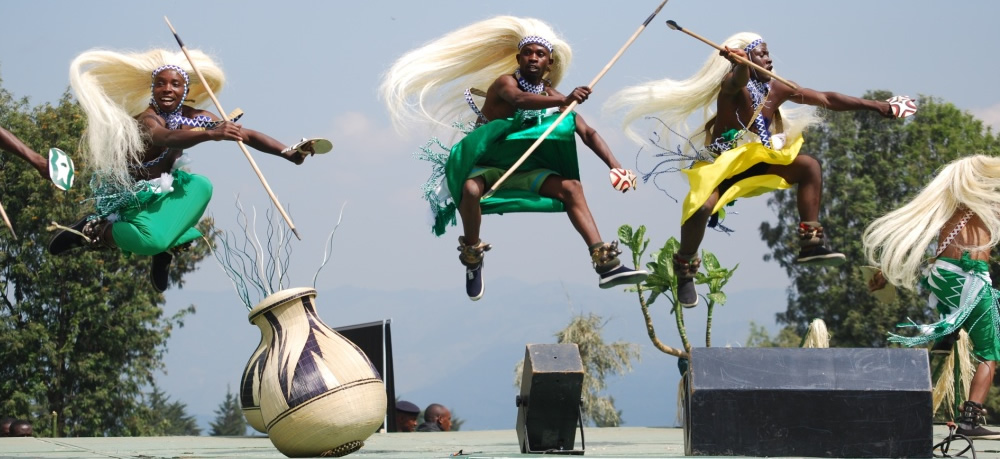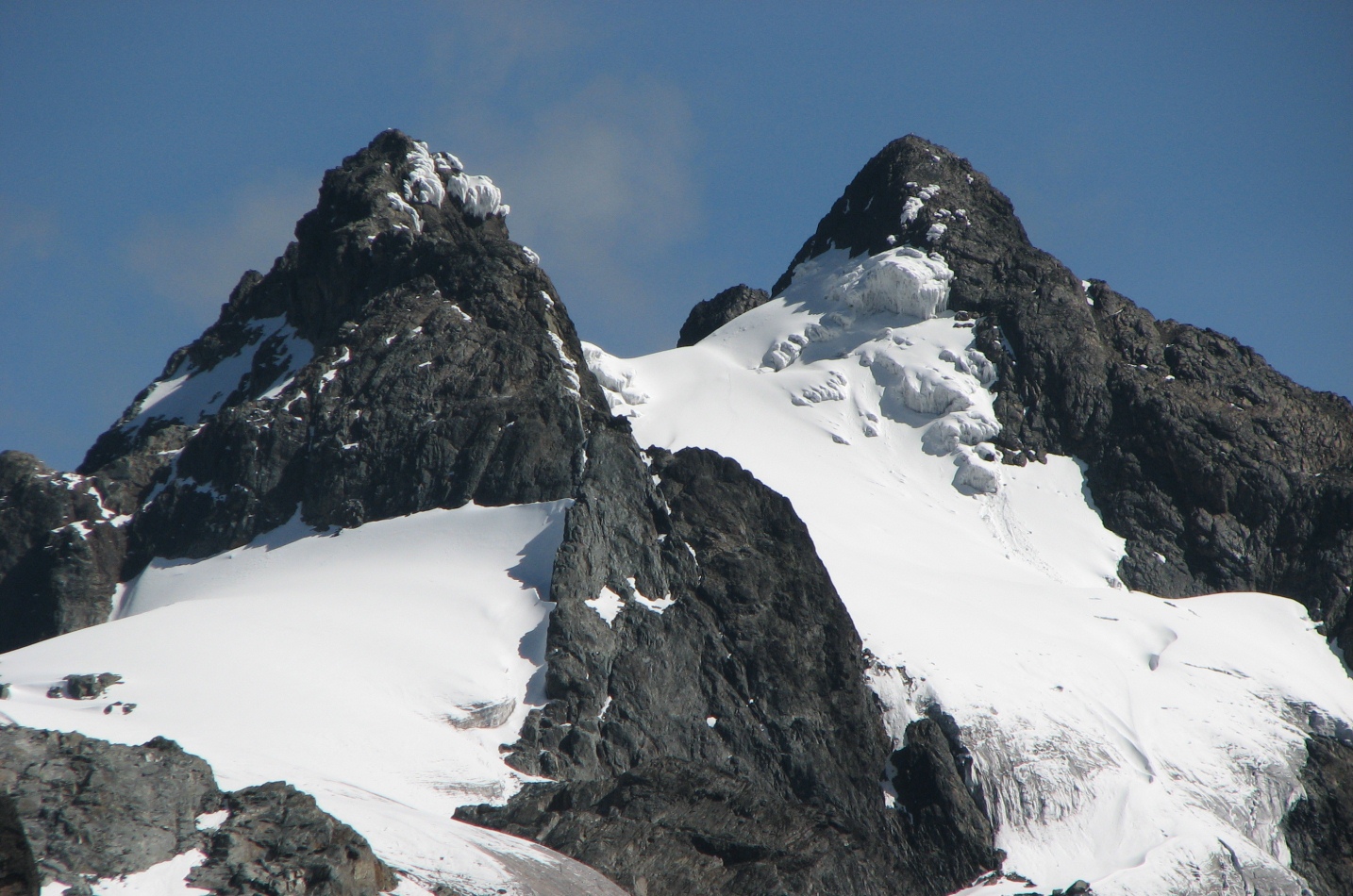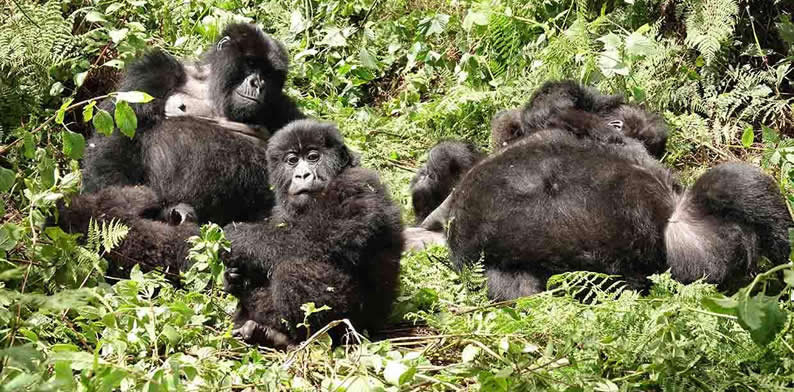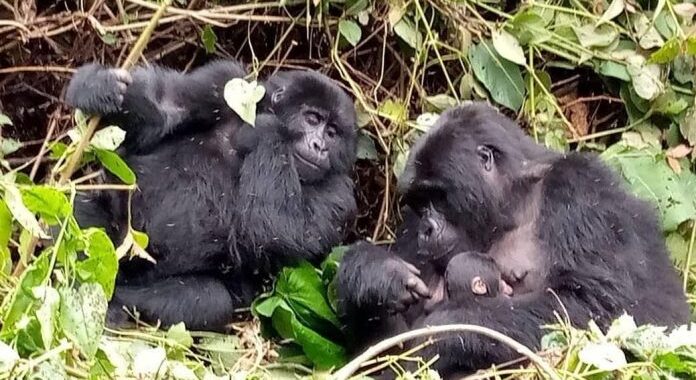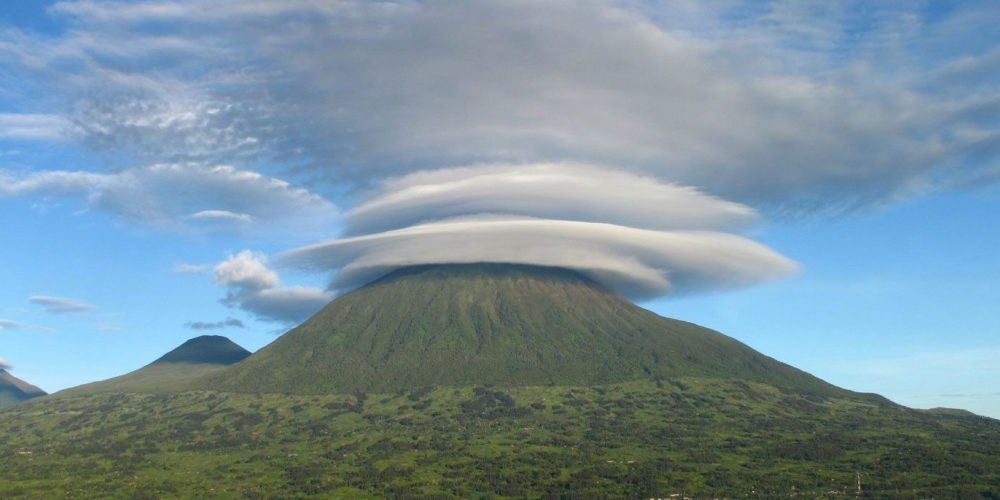Covid19 is a great thereat to the survival of mountain gorillas in Uganda, Rwanda and the Democratic Republic of Congo. YES, whereas gorilla national parks are open for local and international travelers, responsible conservation bodies and gorilla doctors are worried about the transmission of the deadly virus from people to the endangered mountain gorillas. Despite the continued efforts by respective governments to curb the spread of the deadly virus, corona virus has continued to spread like wild fire within local communities, cities and towns across the globe. More new positive covid19 cases have continued to be registered which puts a threat to the endangered mountain gorillas. For this case, all travelers local and international coming to visit gorillas in Uganda, Rwanda and the Democratic Republic of Congo are required to test and present negative covid19 results to ensure no transmission from people to the endangered species.
What makes mountain gorillas vulnerable to Covid19?
Mountain gorillas are man’s close relatives, which share over 99% of human genes. This makes them susceptible to human illnesses especially communicable diseases of which corona virus is among. A traveler with any signs of sickness especially dry cough and flu is so dangerous to the endangered gorillas. Also, traveler’s go0ubg to visit gorillas are advised to the standard Operating procedures to ensure their safety and that for the endangered gorillas. The Covid19 standard Operating Procedures for gorilla trekking in Bwindi Forest and the Virunga Conservation Area include:
1. Mandatory hand washing with clean running water and soap for at least 20 seconds before and after gorilla trekking
2. Mandatory face mask during the gorilla trekking
3. Cough in the elbow, avoid open coughing to avoid the transmission of diseases
4. Park rangers must also test negative for covid19 before addressing and interacting with travelers
5. Avoid touching your eyes, mouth and Nose
6. Travelers within a group should keep a distance of 2 meters away from each other
7. Keep 10 meters away from the gorillas
8. Strict 8 people per gorilla group
9. Mandatory temperature testing
10. Mandatory covid19 negative results
11. Wear leather hand gloves to avoid touching tree branches an trunks which might have been touched by other travelers
12. Sanitize with alcohol based content before, during and after gorilla trekking
13. No sick traveler is allowed to trek gorillas
14. You must have a valid gorilla permit
15. You shall take several breaks to allow you remove masks and breathe some fresh air
16. Carry light bags since no porters are allowed. This is to limit the number of people within a group
Besides covid19 SOPs, travelers visiting to see mountain gorillas are advised to follow other rules and regulations of gorilla trekking. These include:
1. Spend strictly an hour with the gorillas
2. Do not litter in the park
3. Do not smoke in the presence of the gorillas
4. Do not eat or drink in the presence of the gorillas
5. Keep within your group, do not move alone in the jungle
6. Keep calm when a silverback gorilla charges. Do not run away
7. Don’t use flash light cameras
8. Do not look direct into the eyes of the gorillas
Other threats to mountain gorillas
Besides covid19, there are other threats to the endangered mountain gorillas in Bwindi Forest, Volcanoes, Virunga and Mgahinga Gorilla National Parks. The threats to gorillas include:
Poaching:
Poaching has for long been a great threat to the survival of the endangered mountain gorillas. Local people and rebel groups have often trapped and killed the endangered gorillas for meat and other products such as hides. This has hindered the increase of gorilla population in Uganda, Rwanda and the Democratic Republic of Congo for the past 2 decades. However, great thanks to the tourism police, which patrols through gorilla parks day and night to ensure no poachers, are in the park. Also, park rangers and wardens help to sensitize local people on how to conserve endangered gorillas and ensure sustainable gorilla tourism.
Habits loss
: Most of the gorilla parkland has been encroached and grabbed by local people who seek to expand their land for settlement and agriculture. This threat is in all gorilla parks in Uganda, Rwanda and the Democratic Republic of Congo. Habitat loss has limited the settlement area for the endangered gorillas limiting their freedom for an extended free land.
Diseases:
Mountain gorillas are also highly threatened by other diseases, which include flu, cough, and all other communicable diseases
Conclusively, travelers and all people interacting with the endangered gorillas are advised to keep keen and careful to ensure safety of the endangered gorillas amidst the rapid spread of the deadly covid19.
To book a wildlife safari in Uganda and Rwanda,
